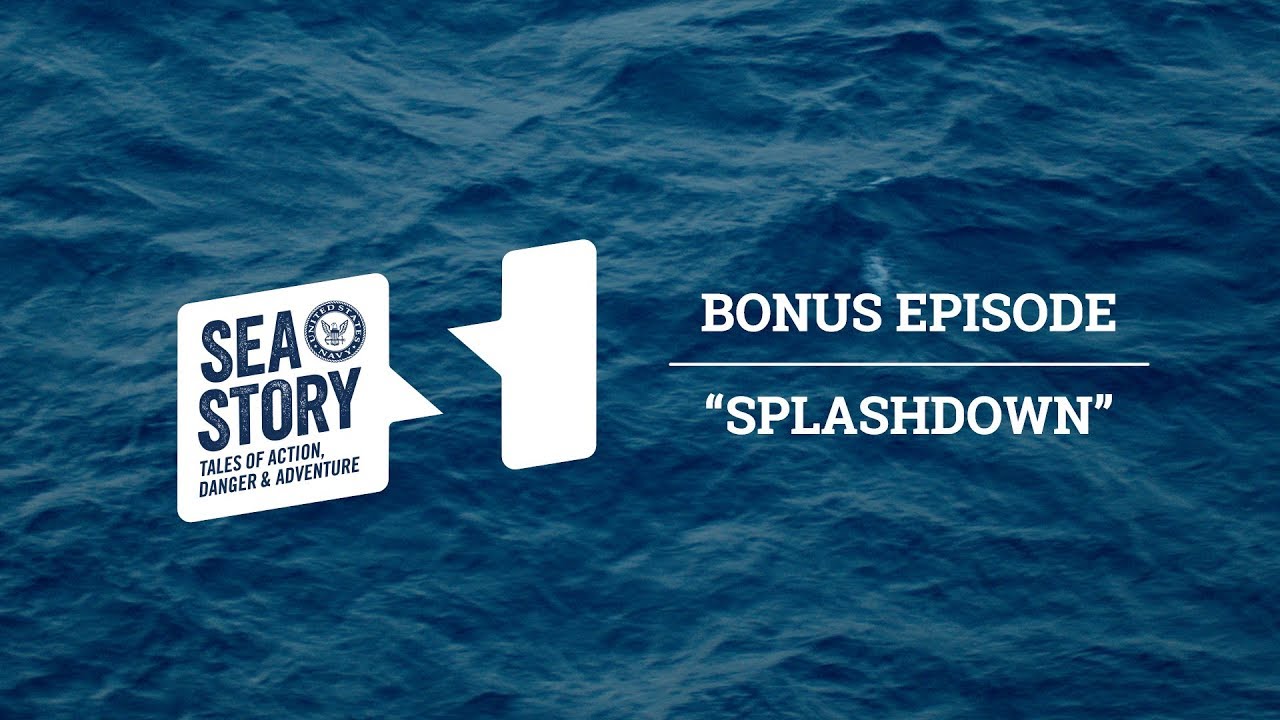WATCH VIDEOS ABOUT NAVY SEALS
NAVY SEAL: CAREER DETAILS & REQUIREMENTS
Responsibilities
Established by President John F. Kennedy in 1962, the Navy SEALs are a nimble, elite maritime military force suited for all aspects of unconventional warfare. In this role, you will provide immediate military relief in crises around the world. Your duties as a SEAL may include, but are not limited to:
- Conducting insertions and extractions by sea, air or land to accomplish covert, Special Warfare/Special Operations missions
- Capturing high-value enemy personnel and terrorists around the world
- Collecting information and intelligence through special reconnaissance missions
- Carrying out small-unit, direct-action missions against military targets
- Performing underwater reconnaissance and the demolition of natural or man-made obstacles prior to amphibious landings
Work Environment
SEALs operate not only as highly capable individuals, but also as members of tightly knit teams. Together, they train and work in all manner of environments, including desert and urban areas, mountains and woodlands, and jungle and arctic conditions. Typical missions may involve insertion into a combat objective by any number of means: parachute, submarine, helicopter, high-speed boat, foot patrol or by a combat swimmer insertion.
Training & Advancement
After initial Recruit Training Command (also known as Boot Camp), this intensive training is designed to push you to your physical and mental limits. If you’re up to the task, you’ll emerge in incredible physical shape and possess the necessary confidence, determination and teamwork to succeed in any combat environment.
SEAL training has been described as brutal, preparing you for the extreme physical and mental challenges of SEAL missions. Training consists of:
- 56 weeks of initial training that includes Basic Underwater Demolition/SEAL BUD/S School, Parachute Jump School and SEAL Qualification Training (SQT)
- 18 months of pre-deployment training and intensive specialized training
Promotion opportunities are regularly available but competitive and based on performance.
For those with further leadership aspirations and a college degree, Navy SEAL Officer roles are available, providing the opportunity to lead and train others.
Post-Service Opportunities
It’s also important to note that specialized training received and work experience gained in the course of service can lead to valuable credentialing and occupational opportunities in related fields.
Education Opportunities
Members of the Naval Special Operations community have many unique opportunities to advance their knowledge. Navy training provides everything from the fundamentals of Explosive Ordnance Disposal (EOD) to knowledge of chemical and biological warfare, military tactics, deep-sea diving or a number of other tactical military procedures.
Beyond offering access to professional credentials and certifications, Navy training in this field can translate to credit hours toward a bachelor’s or associate degree through the American Council on Education.
You may also continue your education through undergraduate degree opportunities like the Navy College Program and Tuition Assistance and the Post-9/11 GI Bill.
Qualifications & Requirements
No college degree is required to become a Navy SEAL, but the standards of qualification require the kind of mental and physical fortitude that few possess.
Upon joining the Navy, you must:
- Meet specific eyesight requirements: 20/40 best eye; 20/70 worst eye; correctable to 20/25. Ask your local Navy recruiter about color blindness.
- Meet the minimum Armed Services Vocational Aptitude Battery (ASVAB) score: GS+MC+EI ≥167, with AR + MK ≥ 100 or VE+MK+MC+CS ≥ 216, with AR + MK ≥ 100 or VE+AR ≥ 108 and MC ≥ 50, with AR + MK ≥ 100 or VE+AR+MK+AO ≥ 216, with AR + MK ≥ 100
- Be less than 29 years old
- Pass a physical examination required for divers
- Be a U.S. citizen and eligible for security clearance
SEALs should have good study habits and learning skills, and knowledge of arithmetic and basic algebra. Mechanical skills are also valuable. You should be in excellent physical condition and able to endure rigorous physiological demands. Strong swimming skills and the ability to withstand fatigue are essential. Every NSW operator must be of the highest moral character in order to be the Special Operations Force that America expects.
Important personal traits for SEALs include maturity, self assurance and self confidence. You should be willing to follow orders and able to work under stressful or hazardous conditions. Ability to work with others as a team is a must.
The Minimum and Elevated Navy Physical Screening Test (PST & EPST) requirements for SEALs are:
| Exercise | Time | Rest | Min. | Elevated |
| Swim 500 yards (combat sidestroke) | Unlimited | 10:00 | 12:30 | 9:30 |
| Push-up | 2:00 | 2:00 | 50 | 75 |
| Sit-up | 2:00 | 2:00 | 50 | 75 |
| Pull-up | 2:00 | 2:00 | 10 | 15 |
| Run 1.5 miles | Unlimited | Event over | 10:30 | 9:30 |
Candidates who achieve the Elevated Physical Screening Test (EPST) scores shown above may qualify for the Enlisted Bonus for Shipping (EB-SHP) program. These elevated standards must be met during your 14-day shipping PST to be eligible for the bonus. Learn more about Navy enlistment bonuses.
NOTE: You should consult your physician or other health-care professional before starting any exercise regime or other fitness program to determine if it is right for your needs. This is particularly true if you (or your family) have a history of medical illnesses or ailments that could be made worse by a change in physical activity. Do not start a fitness program if your physician or health-care provider advises against it.
General qualifications may vary depending upon whether you’re currently serving, whether you’ve served before or whether you’ve never served before.
For additional questions or inquiries, contact: NSW.candidate@socom.mil.
Part-Time Opportunities
There are no part-time jobs as a Navy Reserve Sailor in this role. Go back to Careers to find other jobs that have a Reserve component. You can also find out more about what life is like as a Reserve Sailor in the Navy.
CAN YOU OUTPERFORM TOP NAVY SEAL CANDIDATES?
Check the Navy SEAL PST leaderboard and find a testing event near you.
WATCH VIDEOS ABOUT NAVY SEALS
NAVY SEAL: CAREER DETAILS & REQUIREMENTS
Responsibilities
Established by President John F. Kennedy in 1962, the Navy SEALs are a nimble, elite maritime military force suited for all aspects of unconventional warfare. In this role, you will provide immediate military relief in crises around the world. Your duties as a SEAL Officer may include, but are not limited to:
- Conducting insertions and extractions by sea, air or land to accomplish covert, Special Warfare/Special Operations missions
- Capturing high-value enemy personnel and terrorists around the world
- Collecting information and intelligence through special reconnaissance missions
- Carrying out small-unit, direct-action missions against military targets
- Performing underwater reconnaissance and the demolition of natural or man-made obstacles prior to amphibious landings
- Leading and training Enlisted SEALs in your unit
Work Environment
SEALs operate not only as highly capable individuals, but also as members of tightly knit teams. Together, they train and work in all manner of environments, including desert and urban areas, mountains and woodlands, and jungle and arctic conditions. Typical missions may involve insertion into a combat objective by any number of means: parachute, submarine, helicopter, high-speed boat, foot patrol or by a combat swimmer insertion.
Training & Advancement
SEAL training has been described as brutal— but it prepares you for the extreme physical and mental challenges of SEAL missions. Preparation consists of:
- 62 weeks of initial training that includes Basic Underwater Demolition/SEAL BUD/S School, Parachute Jump School and SEAL Qualification Training (SQT)
- 18 months of pre-deployment training and intensive specialized training
The intensive training is designed to push you to your physical and mental limits. If you’re up to the task, you’ll emerge in incredible physical shape and possess the necessary confidence, determination and teamwork to succeed in any combat environment.
In addition, all SEAL Officers must attend a certified Navy Officer training program.
Promotion opportunities are regularly available but are competitive and based on performance.
Post-Service Opportunities
It’s also important to note that specialized training received and work experience gained in the course of service can lead to valuable credentialing and occupational opportunities in related fields.
Education Opportunities
Beyond professional credentials and certifications, SEAL Officers can advance their education by:
- Pursuing opportunities at institutions such as Naval Postgraduate School (NPS) or Navy War College (NWC)
- Completing Joint Professional Military Education (JPME) at one of the various service colleges
Find out more about additional education opportunities for Officers, including post-graduate school now.
Qualifications & Requirements
A degree from a four-year college or university is a minimum educational requirement to become a Commissioned Officer. You must also attend Officer Training. There may be exceptions to the degree requirements based on extensive service experience.
Upon joining the Navy, you must:
- Meet specific eyesight requirements: 20/40 best eye; 20/70 worst eye; correctable to 20/25. Ask your local Navy recruiter about color blindness.
- Be 28 years of age or younger
- Pass a physical examination required for divers
- Be a U.S. citizen and eligible for security clearance
The Minimum and Elevated Navy Physical Screening Test (PST & EPST) requirements for SEALs are:
| Exercise | Time | Rest | Min. | Elevated |
| Swim 500 yards (combat sidestroke) | Unlimited | 10:00 | 12:30 | 9:30 |
| Push-up | 2:00 | 2:00 | 50 | 75 |
| Sit-up | 2:00 | 2:00 | 50 | 75 |
| Pull-up | 2:00 | 2:00 | 10 | 15 |
| Run 1.5 miles | Unlimited | Event over | 10:30 | 9:30 |
Candidates who achieve the Elevated Physical Screening Test (EPST) scores shown above may qualify for the Enlisted Bonus for Shipping (EB-SHP) program. These elevated standards must be met during your 14-day shipping PST to be eligible for the bonus. Learn more about Navy enlistment bonuses.
NOTE: You should consult your physician or other health-care professional before starting any exercise regime or other fitness program to determine if it is right for your needs. This is particularly true if you (or your family) have a history of medical illnesses or ailments that could be made worse by a change in physical activity. Do not start a fitness program if your physician or health-care provider advises against it.
General qualifications may vary depending upon whether you’re currently serving, whether you’ve served before or whether you’ve never served before.
For additional questions or inquiries, contact: NSW.candidate@socom.mil.
Part-Time Opportunities
There are no part-time jobs as a Navy Reserve Sailor in this role. Go back to Careers to find other jobs that have a Reserve component. You can also find out more about what life is like as a Reserve Sailor in the Navy.
CAN YOU OUTPERFORM TOP NAVY SEAL CANDIDATES?
Check the Navy SEAL PST leaderboard and find a testing event near you.


































































































































